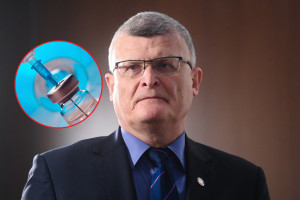18 new duties from June 14. Addiction therapy instructor - full list of competencies

Author: prepared by KM • Source: Rynek Zdrowia • Published: June 14, 2025 11:35 • Updated: June 14, 2025 11:35
Today - June 14, 2025, the regulation on certain medical professions came into force. These provisions specify, among other things, the role of the addiction therapy instructor in the support system for patients with and their loved ones, operating under the supervision of an addiction psychotherapy specialist.
- The addiction therapy instructor, acting under the supervision of an addiction psychotherapy specialist, is responsible for promoting a healthy lifestyle and conducting individual motivational activities for patients and their loved ones.
- Among his many tasks are planning and implementing psychoeducational activities, providing support in crises related to substance craving and running support groups for addicts.
- Monitoring the implementation of patients' treatment plans, participating in therapeutic conferences and subjecting the work to clinical supervision are essential for the effectiveness of the instructor's work.
The addiction therapy instructor plays a key role in supporting people with addictions (chemical and behavioral), working under the supervision of an addiction psychotherapist. Together they form a team that guides the patient through the most difficult stages of therapy.
The regulation issued on April 22, 2025 introduces a detailed catalog of activities of an addiction therapy instructor - this profession is officially and precisely defined. From June 14, the principles of cooperation with patients and the scope of methods used change.
What does an Addiction Therapy Instructor do:
- Motivates patients to change, supports the creation of healthy habits.
- Conducts psychoeducational activities for patients and their families.
- Conducts information and consultation sessions.
- Supports in the crisis of substance craving or compulsions.
- Organizes social skills training.
- Facilitates support groups and therapeutic community meetings.
- Accompanies during group and individual classes.
- Helps develop patients' interests and supports occupational therapy.
- Implements harm reduction programs to minimize the negative effects of addiction.
Treatment process support - instructor:
- Monitors patient tasks included in the treatment plan.
- Participates in progress assessments, conferences, and coordination sessions.
- Undergoes clinical supervision, ensuring high quality and work ethic.
- It focuses on strengthening the patient's social functions and integration.
The new regulation not only regulates the profession legally, but also clearly shows the versatile role played by an addiction therapy instructor – from education, through intervention, to active guidance of the patient towards health and social integration. This is real support in the process of returning to a balanced life.
Copyrighted material - reprint rules are specified in the regulations .
rynekzdrowia








